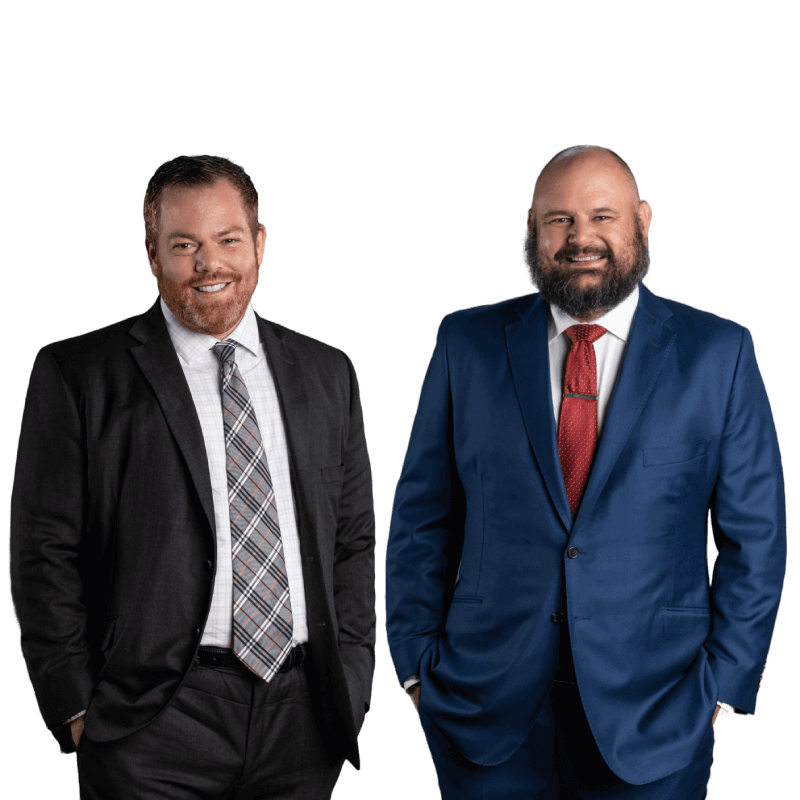If you’ve been driving for years or decades and haven’t had to deal with your insurance provider, consider yourself lucky. Perhaps you have been a driver who caused a car accident, which requires a slightly different way of dealing with your auto insurance provider. If you have recently been involved in an accident that you did not cause, it’s common to wonder if you should call your insurance provider if the accident was not your fault.
You definitely have to report the accident to your auto insurance provider, but their role depends on the coverage and policy limits that you and the other driver have. It’s best to contact an experienced accident injury attorney who can guide you through the claims process and help you find the best way to recover damages.
Until you have the chance to meet with a car accident lawyer, we provide some basic information about how to deal with insurance issues after a traffic accident you didn’t cause, choices you have in different situations and information about the legal process of recovering damages after suffering injuries in a traffic accident.
Should I call my insurance if the accident wasn’t my fault?
Yes, you should call your insurance company even if the accident wasn’t your fault. Reporting the accident is typically required by your policy, it also ensures that the incident is properly documented which can help you avoid disputes later.
Reporting an accident to your auto insurance provider and filing a claim against your policy are two similar but separate activities. In most cases, car accident victims do not have to file a claim under their policy to recover damages. However, accident victims need to report the accident to their insurance company as soon as possible after the accident.
Why you Should Notify Your Insurance Provider
Important reasons to notify your auto insurance provider include:
Policy Requirements
An insurance policy is a binding contract between an insurance carrier and their policyholder. Most policies have clauses that require policyholders to report traffic accidents immediately, regardless of who caused the accident and whether the policyholder must file a claim. If your policy has this language and you do not notify them about a car accident, they could cancel your policy. Also, if you have to file a claim for your accident later on, your insurance provider could deny coverage if you do not report the accident immediately.
Auto Repairs
Although you did not cause a car accident, you will still have to wait months before receiving money from the other driver’s auto insurance provider. Even when settlement negotiations go well, it can take more than a year or two to resolve a claim. The most severe accidents with serious injuries and multiple parties can take multiple years to resolve. It’s typically much quicker for accident victims to file a claim with their own insurance provider to get their vehicle repaired. If you wait too long to notify your insurance carrier, you could be left without the funds to repair your car or rent a car while you are waiting to resolve your claim with the other driver’s insurance company.
Uninsured/Underinsured Motorist (UM/UI) Claim
Arizona does not require drivers to purchase uninsured or underinsured motorist (UM/UI) coverage. If the driver who caused the traffic accident does not have insurance, does not have enough coverage, or leaves the scene of the accident, you can file a claim with your insurance provider if you have UM/UI coverage. If you notify your insurance provider promptly after a car accident, it’s likely they will accept your claim.
If you must file a UM or UI claim with your auto insurance provider, they will investigate the claim as if another party filed a claim against your policy. It’s best to let an experienced car accident attorney help you through the claims process. Also, your lawyer will review your claim to look for potential third parties who might share liability with the at-fault driver.

Contacting the Other Driver’s Insurance Provider
If a traffic accident was not your fault, you need to file a claim against the other driver, but it’s in your best interest to let a lawyer handle communications. Unfortunately, insurance companies will use every tactic possible to protect their bottom line even when they know their policyholder is liable for damages. The major reasons you need to consult an accident injury attorney after an accident include the following:
Insurance Companies Make Lowball Offers
Auto insurance providers do not like to pay accident claims, and they especially do not like making large payouts for injuries. Making a lowball settlement offer soon after an accident is one common tactic they use to reduce financial liability. The insurance company assigns an adjuster to investigate the accident after their policyholder or another driver files a claim. If they determine their policyholder is at fault for an accident, they sometimes make tempting offers to injured victims to entice them to settle the claim. Once an accident victim accepts and signs a settlement offer from an insurance provider, they give up their right to seek additional compensation for injuries or property damage related to the accident.
Accepting an early settlement offer sometimes leaves injured accident victims without the funds they need for more medical treatment if they sustain a severe injury that requires ongoing care. These early offers often come in before a victim and their doctors know the full extent of injuries, and the amount is often far lower than the actual value of the accident injury claim. It’s usually best to think of an early settlement offer as a starting point for settlement negotiations. An experienced accident injury lawyer can evaluate your claim and assign a realistic value to the losses—economic and noneconomic—you’ve incurred because of the accident. In most cases, lawyers obtain more money for their clients.
Insurance Providers Sometimes Twist Statements
The other driver’s auto insurance provider will eventually want a statement from you about how the accident occurred. Many insurance companies request a recorded statement and request claimants to sign a form to release their medical records. Insurance representatives know how to talk to claimants to get them to say something they can use to deny a claim or justify a lower settlement offer. Also, car accident victims who do not cautiously deal with an insurance company can end up releasing their entire medical history to an insurance provider when they are only entitled to records related to the accident.
Car accident lawyers who handle communications with insurance providers protect their clients from innocently saying something that might hurt their accident injury claim. You must give the insurance carrier a statement, but a skilled lawyer can advise you on what information you need to provide them. Car accident attorneys also make sure their clients do not inadvertently sign documents that give auto insurance providers more information than they need, especially medical records.
Insurance Carriers Don’t Play Games with Claimants Who Have a Lawyer
Insurance providers cannot legally act in bad faith, which includes delaying or ignoring accident injury claims. However, some auto insurance providers push the moral and ethical envelope when it comes to evaluating, accepting, and paying claims. Car accident victims who hire a lawyer to represent them during the claims process often find the insurance carrier takes them more seriously. Insurance companies know they cannot play games or use questionable strategies when communicating with an attorney.
You Have More Time to Focus on Recovery and Rehabilitation
Dealing with insurance providers takes time and often overwhelms and frustrates even the most experienced people. You free up your time to concentrate on recovering from your injuries when you let a lawyer handle communications with the insurance company. If you have sustained severe injuries, you might not make a full recovery. However, you need to make every effort possible to follow your doctor’s treatment plan and engage in physical therapy and other specialized treatment. This also strengthens your accident injury claim because once doctors know your long-term prognosis, your lawyer has enough information to place a monetary value on your car accident injury claim.
Negotiating a Settlement with the Auto Insurance Provider
Taking a personal injury claim to trial is expensive for both sides, making settlement negotiations a large part of an insurance claim. Once you get a lawyer involved in your claim, they can contact the other driver’s auto insurance provider with a demand for compensation for your injuries. Or, they can reciprocate contact if the insurance company made you a lowball settlement offer.
Regardless of which side makes first contact, you can be sure the insurance carrier will not offer you anything close to the value your lawyer places on your claim or the amount they put in the demand letter. The insurance company will make every attempt to deny or reduce the amount of the claim. If they cannot deny a claim, many insurance providers downplay accident injuries and argue that a claimant is overstating their injuries and associated losses.
Your lawyer and a representative or lawyer from the insurance company will go back and forth repeatedly with different settlement amounts. You can accept or decline any offer they make, but your attorney will advise you on the best move. Negotiations can take months, sometimes years. Most car accident claims settle without going to trial, so both sides can avoid litigation. However, your lawyer might suggest bringing a formal lawsuit to place additional pressure on the insurance provider.
How Much Compensation Could You Receive from a Settlement?
Many things impact the amount of a settlement. However, those with the most severe injuries typically have the highest value claims. If you prevail in your car accident claim, your settlement could include compensation for various damages, including:
- Vehicle repairs. Car accident victims typically receive money for property damage. This could include money for repairs or money to replace a totaled vehicle.
- Medical treatment costs. Car accident settlements typically include money for medical expenses like ambulance transport, emergency room treatment, hospitalization, surgery, radiology, lab tests, and medication.
- Estimated future medical treatment costs. Those who suffer severe or permanent injuries sometimes need continued treatment and care at home or in a long-term nursing care facility.
- Costs for specialized treatment. Car accident victims often need physical therapy and other types of specialized treatment like occupational therapy or mental health services to help them deal with the physical and mental challenges they face because of their injuries.
- Lost wages. Car accident victims who need to take weeks or months off work because of their injuries get reimbursed for their lost wages in a car accident injury claim.
- Estimated future lost wages. If a car accident causes catastrophic injuries that force someone to permanently leave the workforce or change careers, estimated future lost wages or lost earning capacity might be included in an insurance settlement.
- Home modification costs. Some car accident victims need to make changes to their homes to make them more accessible, especially if they come home from the hospital with permanent injuries. These expenses can range from hundreds to thousands and include things like constructing a wheelchair ramp, installing handrails, putting grab bars in the tub and shower, and building a main floor living area for those who cannot use steps.
- Replacement service costs. Depending on the type and severity of someone’s injuries, a car accident victim or their family might need to hire outside help to assist with household chores the victim handled before they sustained injuries. Examples include people to help with cooking, cleaning, laundry, lawn care, babysitting, running errands, etc.
- Pain and suffering. Traffic accidents are traumatic life events that can cause massive amounts of physical and emotional pain and suffering to those involved. Car accident victims sometimes receive money for pain and suffering to compensate them for the ways their injuries have impacted their life.
Settlement amounts are rarely the total value of a claim. However, expensive litigation can eat up the gain that might come from taking a case to trial. Your personal injury lawyer will present you with any offers you receive, so you can decide whether to accept fair compensation that might be less than the value or choose to let your lawyer litigate your car accident claim.


